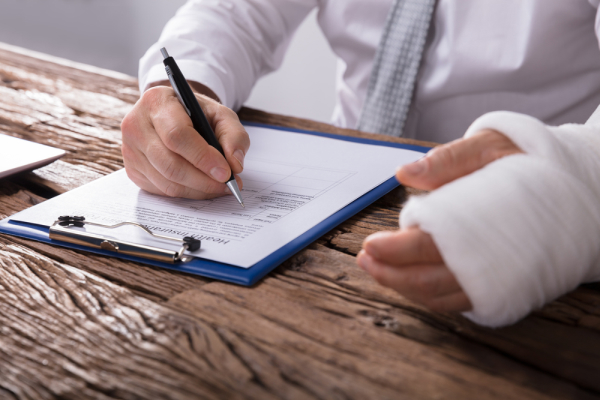
Medical documentation is of the utmost importance in personal injury cases in Topeka. These documents are the foundation for proving the extent of injuries sustained by victims. They provide a detailed account of the injuries, the required treatments, and the prognosis. This information is vital for securing fair compensation for the injured party.
Understanding the importance of these documents impacts the results of a personal injury lawsuit. They support the victim's claims and help quantify the damages for medical expenses, lost wages, and pain and suffering.
At Fincher Law, our personal injury attorneys can help you after a car accident. Our experienced personal injury lawyer can handle your discussions with the insurance company. Always see a doctor for help with a serious injury. Then, contact us for a free consultation.
Medical documentation refers to all the medical records related to treating injuries. These records include doctor's notes, hospital records, treatment plans, and billing information. They serve as evidence of the injuries sustained and the medical care required.
These documents are necessary to prove the severity of the injuries. We might not be able to prove the necessity of medical treatment. A comprehensive collection of medical documentation is crucial. This builds a strong personal injury claim.
It provides a clear and detailed account of the victim's medical journey, which is instrumental in seeking justice and compensation. An experienced personal injury attorney helps victims obtain these records. We can ensure your claim is well-supported.
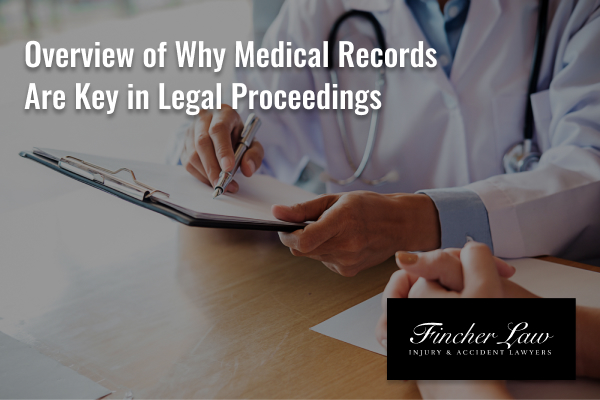
Medical records are the cornerstone of any personal injury case. They offer objective evidence about a victim's injuries and treatment. This documentation is critical for establishing the link between the accident and the injuries claimed.
Without medical records, it becomes harder to demonstrate the impact of an injury on the victim's life. In legal proceedings, these records are scrutinized by both sides to assess the validity and extent of the claims made. They help negotiate settlements with insurance companies and can be decisive in court.
A deep understanding of the types of medical documentation available is essential. This is the foundation of a personal injury lawsuit.
After an accident, it's vital to collect medical records as soon as possible. These documents will form the core evidence for any personal injury case. They detail the injuries and treatment and establish a critical timeline for linking the accident to those injuries.
Prompt and thorough collection of these records ensures that no evidence is overlooked, which could strengthen the case against the responsible party.
Under HIPAA, patients have the right to access their medical records. However, you must authorize their release to third parties, including your personal injury lawyer. Understanding this process is important to ensure your legal team can obtain the necessary documentation.
Completing the appropriate authorization forms accurately is crucial for a smooth process. Be specific about what records are released and to whom they are released. This protects your privacy while allowing your legal team to access the necessary information.
Remember, timely access to your medical records is key. It can impact the progress of your personal injury claim.
Medical records are key in demonstrating the severity and scope of injuries sustained in an accident. They provide concrete evidence of the physical harm you've endured and discuss the required medical interventions.
This information is critical when negotiating for your compensation, including damages for medical bills and lost pay. These records are necessary to pursue a fair settlement.
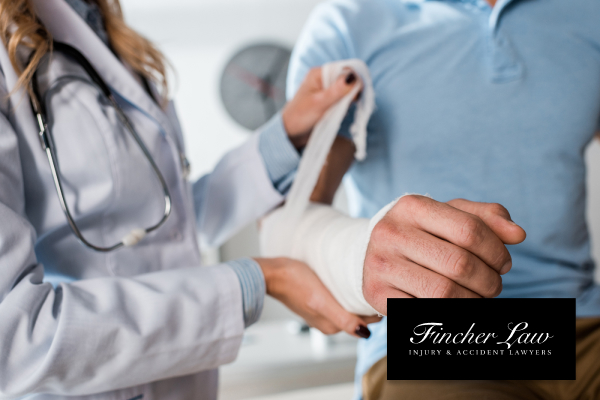
Proving that injuries are directly related to a car or motorcycle accident is fundamental in personal injury cases. Medical records play a pivotal role in establishing this causal link. They provide a timeline that helps to show the injuries due to the accident.
This link is crucial for holding the responsible party accountable and securing compensation. Without a clear connection, the defense may argue that the injuries were pre-existing.
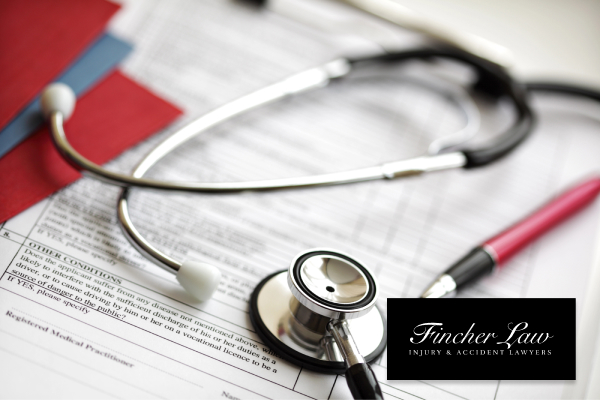
Only complete or timely medical records can help a personal injury case. They may need to provide a full picture of the injuries and treatments, making it challenging to prove the claim. It's crucial to follow up with healthcare providers to ensure all records are complete and up to date.
If delays occur, communicate the importance of these records to your case and enlist the help of your personal injury lawyer if necessary. Their experience can be instrumental in resolving these issues.
Medical documentation influences the outcome of settlement negotiations. These records provide a basis for calculating compensation, which covers medical expenses, lost wages, and pain and suffering.
They also strengthen the case by providing tangible evidence of the injuries and their impact on the victim's life. Without comprehensive medical records, arguing for fair compensation would be challenging. An experienced personal injury attorney knows how to leverage this documentation.
Medical evidence can sway the decisions of insurance adjusters and juries. They provide a factual basis for the claims, making it more likely for adjusters to offer a fair settlement.
In court, this evidence helps juries understand the extent of the injuries and the impact on the victim's life. It's a powerful tool in securing the compensation deserved.
Working with medical experts can strengthen a personal injury case. These professionals can review medical records. They provide expert opinions on catastrophic injuries and treatment.
Their testimony can clarify the severity of the injuries and the necessity of the medical care received. This expert insight can be invaluable in both settlement negotiations and court proceedings. It adds a layer of credibility to the claims made, supporting the pursuit of fair compensation.

At Fincher Law, we understand the critical role of medical documentation in personal injury lawsuits. We work to collect comprehensive medical records that substantiate your claim.
Our experienced team knows how to navigate the complexities of personal injury law. We ensure your case receives the attention and expertise it deserves. Trust us to use every piece of medical evidence.
We will strengthen your case and secure the compensation you need for recovery. Contact us today to learn more about how we can support your personal injury claim.
Schedule Your
Free Consultation
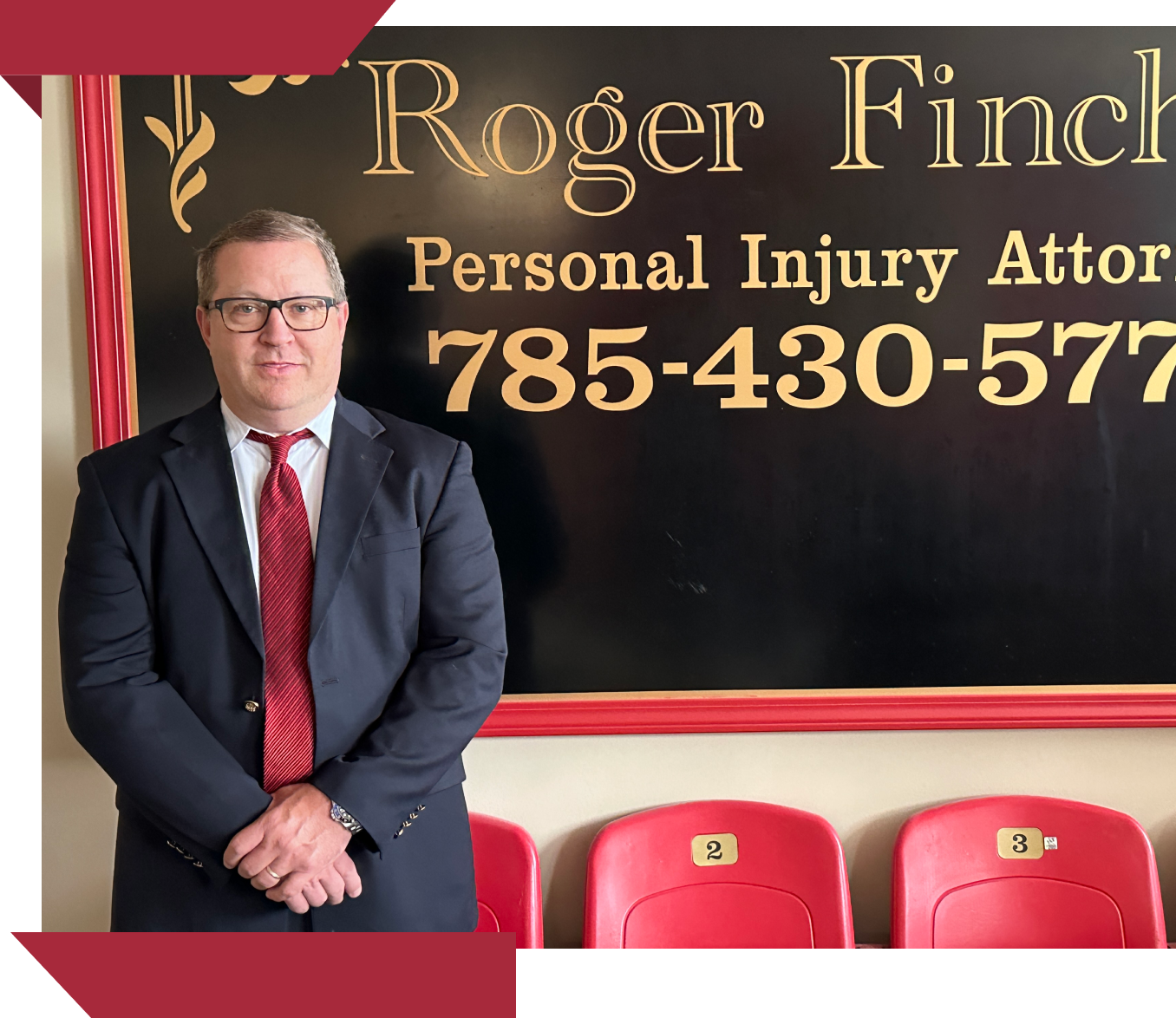


How Can We Help You?
How Can We
Help You?
Schedule a Free Consultation Now By Contacting
Our Team at (785) 430-5770 or by completing the form below
Schedule a Free Consultation Now
By Contacting Our Team
at (785) 430-5770
"*" indicates required fields